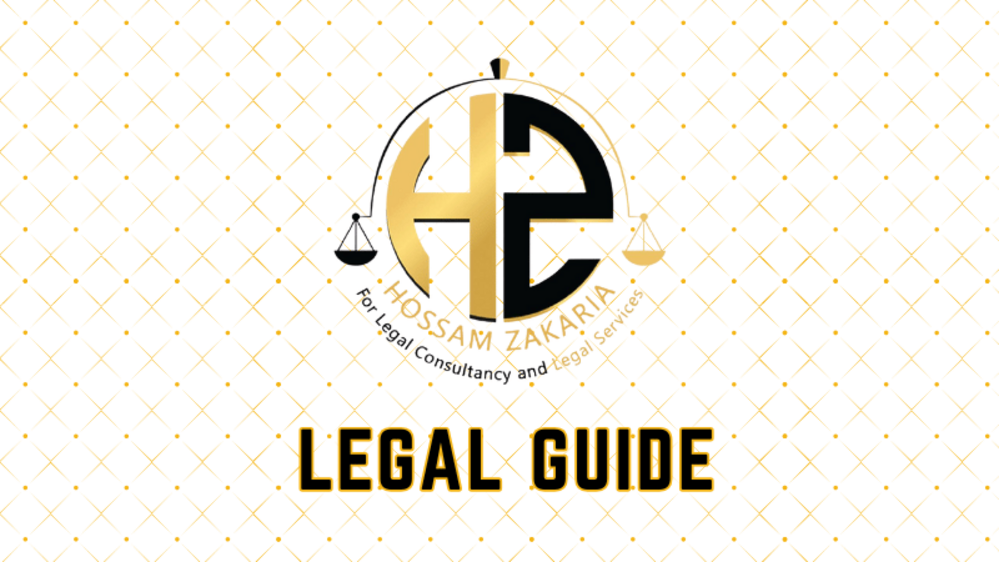Introduction: The Strategic Evolution of Cross Border Arbitration in Saudi Arabia
In the swiftly transforming legal landscape of the Middle East, Saudi Arabia stands at the forefront of arbitration reform and modernization. These pivotal changes are highly significant for businesses operating in and with the UAE, particularly as both jurisdictions compete and cooperate to attract international investment. As regional economies deepen their integration and transnational commercial disputes become increasingly complex, executives, legal professionals, and compliance teams in the UAE must stay ahead of trend lines in Saudi Arabia’s arbitral framework. Qatar’s accession to updated protocols, the UAE’s recent enactment of Federal Law No. 6 of 2018 (Arbitration Law) as amended, and Saudi Arabia’s acceleration towards alignment with international best practices—exemplified by its accession to the New York Convention and the issuance of the 2023 Arbitration Law—all signal that the region is on the brink of a new era for cross border commercial arbitration. This article offers a comprehensive analysis of these developments, practical consultancy guidance for UAE-based organizations, and a forward-looking perspective on optimizing dispute management strategies in response to these legal updates.
Table of Contents
- Understanding Saudi Arabia’s Arbitration Framework: A Regional Perspective
- Key Legal Developments in Saudi Arbitration Law (2023)
- Comparative Analysis: UAE and Saudi Arbitration Regimes
- Practical Opportunities and Strategic Considerations for UAE Enterprises
- Implementation, Compliance, and Mitigating Risks
- Case Studies and Illustrative Scenarios
- Forward Outlook: Future Trends and Strategic Recommendations
Understanding Saudi Arabia’s Arbitration Framework: A Regional Perspective
Background: The Growing Reliance on Arbitration in the GCC
Arbitration is increasingly the preferred mechanism for resolving cross border commercial disputes in the Gulf Cooperation Council (GCC). Both Saudi Arabia and the UAE have pursued regulatory reforms to establish their jurisdictions as arbitration-friendly. Saudi Arabia’s historic reticence towards international arbitration has, over the past decade, shifted to proactive engagement—culminating in the adoption of the 2023 Saudi Arbitration Law and the establishment of the Saudi Center for Commercial Arbitration (SCCA).
For UAE organizations conducting business with Saudi-based entities or investing in the Kingdom, mastering the nuances of Saudi arbitration law is critical. This ensures enforceability of awards, reduces jurisdictional risk, and strengthens negotiation positions during contract drafting.
Official Sources and Foundations
Saudi Arabia’s arbitration framework draws from:
- Arbitration Law issued by Royal Decree No. M/34 (2012), modeled on the UNCITRAL Model Law, and subsequently amended/upgraded by 2023 amendments
- Implementing Regulations (2017, 2023), providing procedural and institutional clarity
- Accession to the New York Convention (1958) on the Recognition and Enforcement of Foreign Arbitral Awards (ratified April 1994)
These legal texts serve as the pillars for enforceable, transparent, and business-friendly arbitration. For further reading, consult the Saudi Government Portal.
Key Legal Developments in Saudi Arbitration Law (2023)
2023 Reform: Elevating Arbitration’s Role in Commercial Dispute Resolution
The 2023 Arbitration Law and accompanying regulations have introduced several critical updates to foster alignment with international best practices and to address historical risks, such as unpredictability in enforcement and perceived lack of neutrality.
| Key Provision | Previous Framework (2012 Law) | 2023 Update |
|---|---|---|
| Arbitrator Appointment | Limited criteria, less party autonomy | Expands party autonomy, clarifies criteria for independence/impartiality |
| Interim Measures | Ambiguous and rarely granted | Detailed authority for tribunals to order interim/provisional relief |
| Applicable Law | Defaulted to Saudi/Sharia law, limited room for party choice | Express recognition of party autonomy to choose substantive law |
| Recognition of Awards | Delays and uncertainty in local courts | Clearer timelines, reduction in public policy objections |
| Confidentiality | Omitted or scattered provisions | Codified confidentiality obligations for parties and arbitrators |
Visual Suggestion: Place a side-by-side summary infographic outlining the 5 most notable reforms for visual clarity.
Enforcement of Foreign Arbitral Awards
Saudi Arabia’s renewed commitment to the New York Convention regime is notable. The 2023 Law reaffirms that Saudi courts shall not revisit the merits of a foreign arbitral award; their review is limited to procedural grounds enumerated by the Convention. This represents a paradigm shift from previous inconsistencies in enforcement practices.
Comparative Analysis: UAE and Saudi Arbitration Regimes
Contrasting Approaches: Structural Similarities and Practical Differences
Both jurisdictions have modernized their arbitration laws to attract global commerce, but important distinctions remain. Federal Law No. 6 of 2018 (as amended) in the UAE and its practice within DIFC and ADGM stand in contrast to certain persistent nuances in Saudi arbitration, especially regarding arbitrability, public policy, and institutional support.
| Key Issue | UAE Law (Federal Law No. 6/2018) | Saudi Law (2023) |
|---|---|---|
| Legal Basis | UNCITRAL Model Law influenced, federal structure, dedicated courts (e.g., DIFC, ADGM) | Heavily modeled on UNCITRAL, Sharia foundation, central business courts |
| Arbitral Institutions | DIAC, ADCCAC, DIFC-LCIA, ICC-ADGM | SCCA (primary), ICC Saudi branch |
| Enforcement of Foreign Awards | Robust, pro-enforcement approach post-2018 reforms | Substantially improved, but still influenced by local norms in edge cases |
| Choice of Law | Liberal party autonomy, with Sharia exception | Recent reforms bolster party autonomy, but public order still monitored |
Legal practitioners should carefully assess which jurisdiction’s law and institution best support enforceability and risk mitigation in each contract.
Opportunities for Synergy
The cross-border business environment requires a nuanced approach that leverages the strengths of both systems. Adopting multi-tier dispute resolution clauses or designating neutral bodies like SCCA or DIFC-LCIA may optimize outcomes when parties from Saudi Arabia and the UAE are involved.
Practical Opportunities and Strategic Considerations for UAE Enterprises
Enhanced Certainty and Investment Protection
The Saudi reforms directly benefit UAE companies in bilateral trade, joint ventures, infrastructure, and technology partnerships. Key commercial sectors such as energy, construction, e-commerce, and fintech now find fewer barriers to timely and impartial dispute resolution.
- Contractual Strategy: Parties negotiating with Saudi counterparties should review arbitration clauses for updated legal references and alignment with SCCA Rules 2023 or selected international rules.
- Forum Shopping: Consider the arbitral institution with the optimal enforcement track record, procedural flexibility, and ability to administer proceedings bilingually (Arabic/English).
- Risk Reduction: Take advantage of arbitrator neutrality and joint appointment mechanisms now supported by law, avoiding local bias and delays.
Drafting and Negotiation: Best Practices for Dispute Clauses
Key elements to negotiate in any Saudi-UAE cross border contract include:
- Clarity around the seat of arbitration and institutional rules
- Predetermined language of proceedings
- Express choice of substantive law
- Clear agreement on interim or emergency relief procedures
- Enforcement pathway references (including reference to the New York Convention)
Visual Suggestion: Insert a checklist graphic entitled “5 Essential Elements for Cross Border Arbitration Clauses.”
Implementation, Compliance, and Mitigating Risks
Risks of Non-Compliance or Poorly Drafted Clauses
Companies that neglect legal updates or fail to adapt contractual templates risk:
- Non-Enforcement: Awards not recognized/enforced due to technical defects or improper jurisdictional choices.
- Delay and Cost Escalation: Disputes escalated through imperfect clause drafting, e.g., ambiguities on institution or seat.
- Local Law Pitfalls: Incurring public policy objections under Saudi or UAE law (often related to interest, damages, or arbitrability of particular disputes).
Compliance Strategies:
- Use model clauses recommended by SCCA, DIFC-LCIA, or ICC with express adaptation to Saudi and UAE specificities.
- Annual review of standard contracts by UAE legal counsel with cross-jurisdictional expertise.
- Active monitoring of Ministerial announcements—see UAE Ministry of Justice and Saudi Government Portal.
Compliance Checklist: Saudi-UAE Arbitration Engagement
| Step | Compliance Action |
|---|---|
| 1 | Confirm acceding parties and eligible disputes under both national laws |
| 2 | Draft robust, tailored arbitration clauses citing current laws/rules |
| 3 | Designate reliable arbitration seat/institution respecting party neutrality |
| 4 | Plan for interim relief via chosen procedure (institutional or ad hoc) |
| 5 | Monitor changing judicial/arbitral practice for future enforcement risks |
Visual Suggestion: Add a process flow diagram tracking dispute progression under the 2023 Saudi regime.
Case Studies and Illustrative Scenarios
Case Study 1: Construction Dispute – Joint Venture Delay
A UAE-headquartered engineering firm partners with a Saudi company to deliver a major infrastructure project in Riyadh. When delays arise, the contract’s arbitration clause (drafted under 2012 law) refers disputes to “Saudi arbitration under applicable laws.”
Analysis: The 2023 law ensures the parties can, with mutual consent, apply SCCA’s updated rules. If the award is issued by an SCCA panel, enforcement in Saudi courts should proceed swiftly, with limited risk of “public policy” challenge. Were the clause vague or silent on key terms, enforcement or recognition could be at risk.
Case Study 2: E-Commerce Licensing and Technology Royalties
A UAE tech investor licenses its e-commerce platform to a Saudi operator for a multi-year term. Royalties are disputed, and the contract includes an ICC arbitration clause, seated in Dubai.
Analysis: Post-2023, the Saudi courts must enforce the Dubai-seated award unless very narrow procedural defects are found. The enhanced recognition of party autonomy on applicable law precludes most past objections, provided enforcement formalities are met.
Case Study 3: Financial Services Dispute – Local Regulatory Overlap
An Islamic finance institution (UAE-domiciled) enters a derivatives agreement with a Saudi bank. Dispute arises, and the choice of Sharia-compliant law is challenged by one party after award issuance.
Analysis: The amendments uphold the parties’ right to select Islamic law expressly. Awards inconsistent with basic Sharia tenets or Saudi public order may still encounter resistance, but clear choice and contractual discipline sharply reduce enforcement risk.
Forward Outlook: Future Trends and Strategic Recommendations
Legal Harmonization and Market Opportunity
Saudi Arabia’s transformation positions it as an increasingly reliable forum for global and regional commerce. For UAE-based businesses and their advisors, the trend is overwhelmingly positive—legal harmonization across the Gulf not only reduces dispute risk but supports long-term investment security. Continuous regulatory updates from both the Saudi Ministry of Justice and UAE Ministry of Justice mean vigilance is essential.
Best Practices for UAE Legal and Risk Teams
- Sustain ongoing professional development on Saudi legal reforms and SCCA procedural updates.
- Engage cross-jurisdictional legal counsel for major cross border transactions.
- Integrate contract management systems to flag outdated dispute resolution clauses for review.
- Pilot test alternative mechanisms, such as expedited or online arbitration, for lower-value or high-volume claims.
Conclusion: Leveraging Arbitration for Regional Growth
The latest legal developments in Saudi Arabia’s arbitration regime are unlocking a new tier of opportunity for UAE enterprises. With enforceability risks declining and procedural clarity on the rise, the strategic use of international arbitration promises flexibility, neutrality, and speed in cross border commercial dealings. Corporate legal and compliance teams must act proactively: updating templates, enhancing contract negotiation skills, and remaining alert to the nuances of legal harmonization. Those who do will secure a significant competitive advantage in the evolving GCC market landscape.
For tailored advice, or to review your organization’s cross border dispute resolution strategy, contact our specialist arbitration team today.



